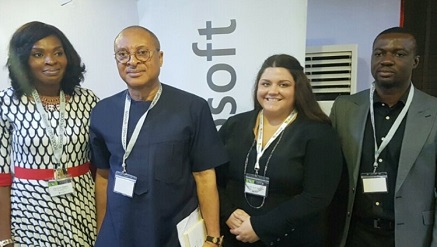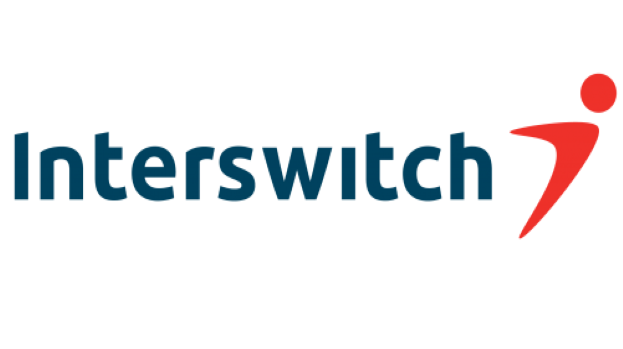E-Business
Microsoft, Utomi Support FliplearnCon on Modern Teaching Models for Educators

Microsoft Nigeria; Professor Pat Utomi, founder/CEO at Centre for Values in Leadership (CVL); among other educators have expressed support to Flip Learn Kids Conference (FliplearnCon) organized to explore various depth in the educational system and harness 21st Century models in the country’s learning experience.
During the annual event, school owners, stakeholders and internationally reputable educators gather to discuss emerging trends and technology with the aim of making impact in Nigeria’s educational system.
Speaking at the Conference held at the weekend in Lagos, Prof. Utomi, founder/CEO at Centre for Values in Leadership (CVL), said that 21st Century culture is in transition hence knowledge is changing.
He said that for the country to create a new boisterous economy stimulated by entrepreneurship, it needs a liberated pedagogy, “Where people are allowed to learn about how to tackle their challenges through the global entrepreneurship views”.
According to him, every generation is supposed to make its shoulders available for the upcoming generation to stand and see its future clearer. “That is where Nigeria has failed. We have created a generation that believes it can’t achieve something tangible unless they are assisted.
He said that the Flip Learn Kids efforts to inundating educators in the country with contemporary teaching tools, is a welcome development that should be supported by all stakeholders.
Microsoft Education, Jordan Alyse Belmonte, education programs manager, Microsoft Nigeria, said, is on a mission to creating immersive and inclusive experiences that inspire lifelong learning, stimulate development of essential life skills, and support educators in guiding and nurturing student passions.
Belmonte said that Microsoft is working with different institutions in education to transform lives and foster economic growth across in the country.
She said, “We invest heavily in education in Nigeria to provide affordable access to technology and experience, especially to academic institutions. The theme of today’s event is ‘Creativity in Learning’, and Microsoft has been on the vanguard to using technology to impact students knowing that not all students learn the same way; some students are visual learners, some, by practical. However, in the classroom environment, that is not easily embraced. But with technology such experience can be realised in the classroom. Microsoft’s quest is to get schools and educators to be at tune with the modern methods teaching the students to develop critical thinking skills, communication and creativity skills that are needed at the present day workplace.
“Microsoft has success stories in Anambra State which adopted the ‘Microsoft Academy’, a digital training platform for teachers. The solution has transformed the secondary school system in the State as it has helped teachers to upgrade their skills and adopting best teaching methodology. The ripple advantage is that the State was among the best with WAEC results in 2015. Due to this solution, the Commissioner for Education also won the best commissioner for education of the year award. Also, hundreds of private schools across the country are adopting the solutions; the Federal Ministry of Education has also approved the solution for Unity Schools. So, we are penetrating different areas of the country, not focusing just in Lagos”.
Aside the Microsoft Academy, she said the global technology giant offers Office365 for every education institution which includes Excel, PowerPoint, Microsoft Word, etc., meant for every teacher to develop more interactive process with the students, because of the messaging, inbox, conferencing tools; in fact, it offers the best for schools and we want people to have access to it.
“Microsoft Education is another big platform. We also offer free developers tools for our students to develop professional games and website. We have also gone to the level of giving them free Azure account, for them to store (personal) data while developing their applications. So these are some of the thing are doing to make it easier for schools to adopt Science, Technology, Engineering and Mathematics (S.T.E.M) programs”, Belmonte added.
On his part, Clifford Ifebueme, director of Strategy, Flip Learn Kids, said they are working on redefining 21st Century education with a focus on understanding the present and future education barriers, and evolving innovative solutions to address these problems.
“Fliplearn Kids is an EdTech initiative aimed at redefining learning for kids and content delivery for educators. Our aim is to promote internalized learning and do away with rote memorization. Our products and services cater for kids ages 5-16 years, parents and educators. They are the Virtual Reality Demo for Schools.; eCreative Writing; Learning Management System and EdTech Conferences and Training”, he said
Speaking specifically on the ‘Professional Skills Development for Educators’, Ifebueme said that with technology being just a tool and playing a very big role in the kids learning experience, the teachers are also major players in motivating the kids and getting them to work collectively.
“Our trainings are aimed at improving classroom learning experience and skills of teachers through our training programme. Our training programme focuses on the role of the 21st Century teachers and their understanding of the iGeneration, in addition, they are exposed to different technological tools for learning individualization and content delivery.
“Our mission is to redefine learning experience for kids through the use of technology, by being a world-class EdTech company with innovative offerings for redefining learning for kids and content delivery for educators through the use of technology”
“We have the Virtual Reality Demo for Schools. As kids are always intrigued by colours, shapes and sounds and always have a way of exploring things by playing with or using them, we are leveraging on these basic principles of learning to produce excitement, convincing and memorable results. With immersive multimedia quality, there is a higher potential of enhancing the kids learning process. Virtual reality environment can be interesting and similar to the real world creating a lifelike and sensory experience. You can schedule a demo for your school by clicking the link below and we will get you all set up,” he added.
E-Business
AfDB, UNDP Launch $10Bn AI Initiative for Africa

The African Development Bank Group (AfDB) and the United Nations Development Programme (UNDP) have launched an ambitious $10 billion project to support the adoption of Artificial Intelligence (AI) across the continent.

The 10 Billion Initiative intends to accelerate ethical AI adoption and inclusive digital economic growth in Africa.
The initiative follows the Nairobi AI Forum, which took place earlier this month in Kenya and brought together governments, private sector leaders, development partners, and tech innovators to define pathways for impactful AI adoption.
According to the organisations, the strategy is a co-designed collaboration between the Bank Group, UNDP, and commercial partners that aims to raise up to $10 billion by 2035.
The resources will be used to create up to 40 million new jobs across the continent by 2035, through targeted investments that provide the groundwork for AI and accelerate widespread adoption in everything from entrepreneurship and regional data infrastructure to policy frameworks and skill development.
Nicholas Williams, AfDB Group ICT operations division manager, commented: “As a leading multilateral development institution, the bank is leveraging its comparative advantage to ensure Africa is not left behind in the AI era.
“The AI 10 Billion Initiative paves the way for expanded partnerships and sustained investments that will accelerate AI entrepreneurship, strengthen data and infrastructure ecosystems, and support inclusive growth across the continent.”
E-Business
Firm Identifies RenEngine Loader Distributed Through Pirated Games and Software

Kaspersky Threat Research has revealed its analysis of RenEngine, a malware loader that has recently gained public attention. Kaspersky identified RenEngine samples as early as March 2025, with its solutions already protecting users from the threat at that time.

Beyond the cracked games highlighted in recent reports, Kaspersky researchers discovered that attackers created dozens of websites distributing RenEngine through pirated software, including graphics editors like CorelDRAW. This expands the known attack surface beyond the gaming community to anyone seeking unlicensed software.
Kaspersky has recorded incidents in Russia, Brazil, Turkey, Spain and Germany, among other countries. The distribution pattern indicates opportunistic attacks rather than targeted operations.
When Kaspersky first identified RenEngine, the loader was delivering the Lumma stealer. Current attacks distribute ACR Stealer as the final payload, and Vidar stealer has also been observed in some infection chains.
The campaign exploits modified versions of games built on the Ren’Py visual novel engine. When users launch infected installers, a fake loading screen appears while malicious scripts execute in the background. The scripts include sandbox detection capabilities and decrypt a payload that initiates a multi-stage infection chain using HijackLoader, a modular malware delivery tool.
“This threat extends beyond pirated games — attackers are using the same technique to distribute malware through cracked productivity software, which broadens the potential victim pool significantly,” said Pavel Sinenko, lead malware analyst at Kaspersky Threat Research. “Game archive formats vary by engine and title. If an engine doesn’t check the integrity of its resources, attackers can embed malware that executes the moment you click play.”
Kaspersky solutions detect RenEngine as Trojan.Python.Agent.nb and HEUR:Trojan.Python.Agent.gen. HijackLoader is detected as Trojan.Win32.Penguish and Trojan.Win32.DllHijacker.
E-Business
Interswitch Partners Abia to Digitise Public Hospitals

Interswitch, a technology company, through its health-tech subsidiary, Interswitch eClat, has taken a major step in advancing Nigeria’s public-sector health digitisation agenda following the conclusion of a high-level stakeholders’ engagement with the Abia State Government.

The engagement took place ahead of the phased deployment of eClinic, Interswitch eClat’s Electronic Medical Records platform, across public health facilities in the state, the firm stated in a statement on Friday.
The engagement, convened by the Abia State Ministry of Health in collaboration with Interswitch and held at the State’s Ministry of Health in Umuahia, brought together senior government officials, health administrators, Interswitch representatives, and key ecosystem stakeholders to align on the scope, implementation framework, and expected outcomes of the proposed eClinic deployment.
The initiative reflects a shared commitment to leveraging digital infrastructure to improve healthcare delivery, operational efficiency, and patient outcomes across Abia State’s public health system.
Discussions focused on deploying Interswitch’s eClinic solution in alignment with Abia State’s broader healthcare reform agenda under the current administration, particularly the transition from fragmented, paper-based systems to secure, interoperable digital platforms across public health facilities.
The proposed kick-off phase will span six public health facilities, including three primary healthcare centres, two secondary facilities, and one tertiary hospital, creating an end-to-end digital care pathway that strengthens patient referrals, supports continuity of care, and enables data-driven decision-making across all levels of service delivery.
The EMR solution is built to reduce patient waiting times, strengthen referral processes, and ensure the secure handling of both clinical and administrative data, supported by a hybrid infrastructure that enables local hosting with cloud-based backup.
Speaking at the engagement, Prof Enoch Uche, the Commissioner for Health, Abia State, described the initiative as a major milestone in the state’s healthcare transformation journey and highlighted the importance of private-sector collaboration in achieving sustainable impact.
“The Ministry of Health in Abia State is excited about the digitisation of health facilities, starting with Interswitch’s eClinic pilot phase involving three primary, two secondary, and one tertiary health centre. This initiative will enhance efficiency, accountability, and patient care by linking records across different levels of care.
“Global evidence shows that digital health improves access, reduces the cost of care, and maximises human resources while personalising services for our people. This partnership with Interswitch represents a key deliverable for this administration and aligns with the Governor’s vision for a modern, technology-driven health system,” he said.
During technical sessions led by Babatunde Fadeyi, Vice President, Health Ecosystem (Public Sector), Interswitch, stakeholders were taken through the core capabilities of Interswitch’s eClinic platform.
These include secure patient record management, ICD-11–compliant diagnosis coding, controlled data update protocols, and integrated billing and reporting tools designed to improve efficiency and accountability across health facilities.
Stakeholders were also briefed on the platform’s governance framework, risk mitigation approach, and phased implementation roadmap. Commenting on the engagement, Fadeyi reaffirmed Interswitch’s commitment to delivering measurable impact through technology-enabled healthcare systems.
“Abia State has demonstrated a strong commitment to innovation and system reform. The alignment of the state’s healthcare priorities with national health digitisation objectives creates a solid foundation for meaningful progress. Interswitch’s eClinic platform is designed to improve hospital operations by automating workflows, securing patient data, and providing healthcare managers with reliable insights to guide decisions.
“Beyond improving patient experience, it supports stronger revenue tracking, operational efficiency, and accountability. Our focus is to ensure the success of this pilot phase and deliver tangible improvements across productivity, service delivery, and patient satisfaction,” he said.
Also speaking at the engagement, Dr Ifeyinwa Blossom Uma-Kalu, the Permanent Secretary of the Ministry of Health, Abia State, highlighted the operational and clinical value of Interswitch’s eClinic initiative, particularly in strengthening referrals, improving revenue management, and expanding access to specialist care.
“This digitisation initiative will help us track our finances and internally generated revenue more accurately while reducing leakages. More importantly, it strengthens our referral system by allowing patient records to move seamlessly from primary to secondary and tertiary care.
“With a digital framework, healthcare workers in remote communities can access specialist support through telemedicine, helping to save lives and improve outcomes. This is a critical tool in our efforts to reduce maternal and infant mortality, and we are eager to see the outcomes of Interswitch’s eClinic,” she noted.
The engagement also addressed key success factors for the project, including power stability, user training, change management, and inter-agency collaboration, with both parties emphasising sustainability and scalability as the project progresses.

 General News3 days ago
General News3 days agoZinox Technologies and TD Africa Forge Strategic Partnership to Revolutionize African Tech Ecosystem

 Telecom3 days ago
Telecom3 days agoUwaje Pays Tribute to Leo Stan Ekeh @70

 Telecom2 days ago
Telecom2 days agoCyber Immunity Emerges as Shield for Nigerians Amid Rising Scams

 E-Financial2 days ago
E-Financial2 days ago$214Bn Missing, Institutions Silent: Is Accountability Dead in Nigeria?

 E-Business2 days ago
E-Business2 days agoInterswitch Partners Abia to Digitise Public Hospitals

 General News2 days ago
General News2 days agoNITDA, Abia Partner on Enterprise Architecture Reform

 E-Business2 days ago
E-Business2 days agoWIEG 2026 Summit Shifts to April 22-23 for Maximum Impact

 News1 day ago
News1 day agoNITDA Urges Stronger State Partnerships as Key to Digital Economy Goals @ South-South Stakeholders Forum














